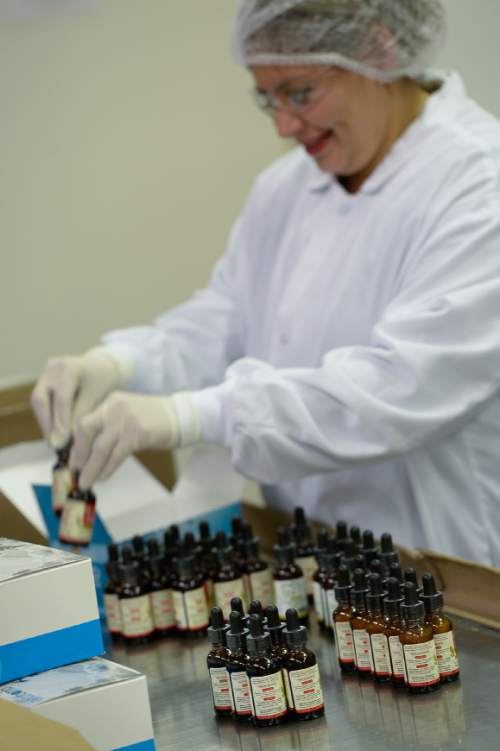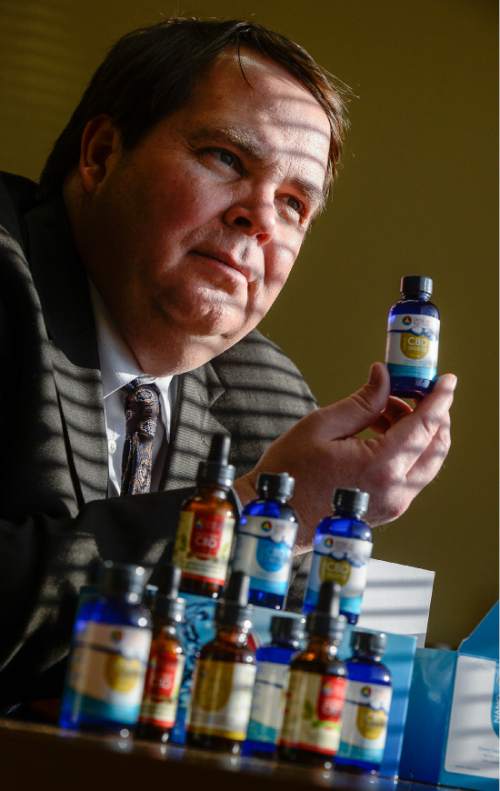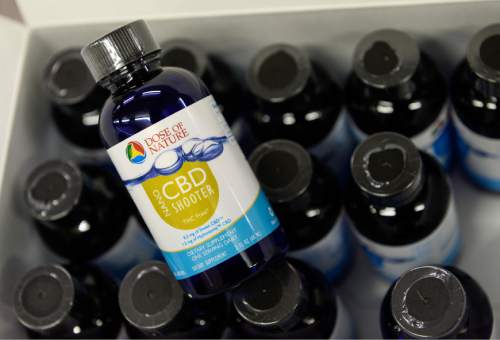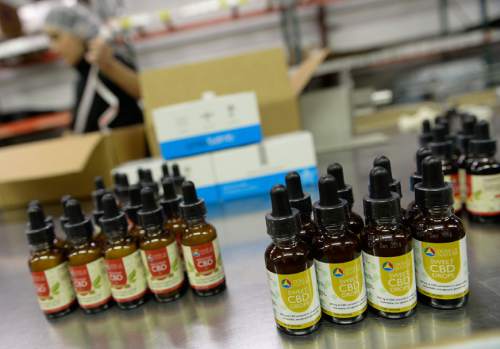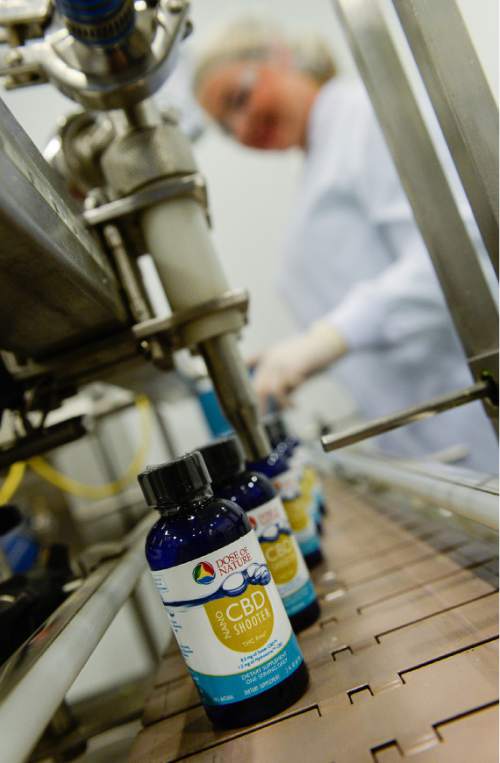This is an archived article that was published on sltrib.com in 2015, and information in the article may be outdated. It is provided only for personal research purposes and may not be reprinted.
Recreational marijuana may not be legal in Utah, but a Utah County business is betting on demand for products touting the medicinal benefits of cannabis plants.
Orem-based Dose of Nature announced on Thursday the launch of a cannabidiol or CBD product line made from industrial hemp extract.
CEO Richard Richardson said the company has already received orders from customers in Utah and the product is shelved and "ready to go."
"It has some amazing anti-pain, anti-inflammatory, anti-anxiety benefits, but without any kind of high," Richardson said. "It doesn't put you to sleep. It calms you down. It allows you to deal with things."
Dose of Nature refines and purifies a hemp paste — newly available from marijuana plants grown outside the country — into a concentrated oil that Richardson says is as potent as medical cannabidiol.
A 2-ounce vial of essential oil — what the company calls a "Nano CBD Chaser Sample Pack" — sells for $69.95.
But one parent who pushed for the state's law allowing marijuana-based CBD treatments says she is unlikely to use Dose of Nature's products.
Hope 4 Children With Epilepsy co-founder Jennifer May said legal hemp extract products typically do not contain sufficient amounts of CBD.
Commercial CBD oil, like the Dose of Nature line, can be helpful for people with a number of ailments, including less-severe cases of epilepsy, May said. But for her child, who experiences as many as 40 seizures a day, a treatment of commercial CBD would cost thousands of dollars each month.
May compared CBD to other medicines, where a low dose can be purchased over the counter but larger doses require a prescription.
"You can buy enough oil to dose that high, but you'd have to consume more oil, which isn't always ideal, and it would be very expensive," she said.
Another challenge facing Dose of Nature, Richardson acknowledges, is a misunderstanding of hemp-based products.
Laws regulating the sale of CBD are complex and Dose of Nature's location places it in a community where many potential customers are members of The Church of Jesus Christ of Latter-day Saints, which encourages abstinence from recreational drugs including marijuana.
While hemp extract is not technically THC-free, Richardson said, the THC levels are low enough to comply with federal restrictions and too low to produce a high in users.
"The legality is one thing and what we find in Utah is the morality is a whole other thing," he said. "We try hard to educate people as to what it is and everyone has a different take on it."
According to Richardson, products like the Dose of Nature line are legal because they are made from cannabis plants grown outside the United States. The plants are then converted into hemp extract and stripped of THC, the psychoactive element in marijuana, before entering the country.
"Any imported hemp oil is treated very different from locally grown marijuana," he said.
Once in Utah, Richardson said, the extract is purified to remove the harsh flavor of hemp paste and create a concentrated oil that maximizes the beneficial properties of CBD.
The resulting product, and others like it, sells as a nutritional supplement rather than a pharmaceutical treatment and does not require a prescription or medical marijuana permit.
"It has a lot of the medical benefits that people are searching for," he said.
But the legality of CBD products is not crystal clear. Calls to the Utah Attorney General's Office for clarification were forwarded to the Utah Department of Health, then the Utah Department of Agriculture and finally the Salt Lake City office of the Drug Enforcement Administration.
DEA spokeswoman Nicki Hollmann said she was not familiar with Dose of Nature. But she said federal law could potentially allow for the sale of a product that contains negligible THC and doesn't require the transportation of marijuana across state lines.
"If there's no THC, then it's not a violation of the controlled substance act," she said.
Last year, Utah lawmakers passed HB105, also known as "Charlee's Law," which allows Utahns to obtain cannabis oil as a treatment for epilepsy. With Charlee's Law, parents of epileptic children are able to obtain trial access to pharmaceutical CBD made from marijuana plants grown within the United States.
May said she isn't opposed to businesses like Dose of Nature, but she is concerned about the quality of imported hemp extract.
"It's imported, so we don't know what strain it is," May said. "We don't know where it was grown. We don't know what the true content is."
She also said commercial products have the potential to confuse parents looking to treat their children.
"I worry about them paying a lot of money, thinking they're getting the same product," May said.
But Richardson said Dose of Nature's refining process creates a product that is as potent or more potent than medical cannabidiol. The difference, he said, is that his company's product does not require a special license or further legalization of cannabis.
"You can get access to CBD without having to have access to medical marijuana," he said.


